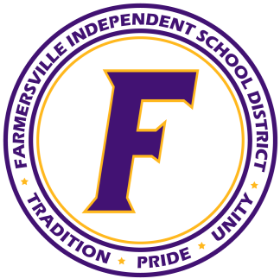Research Skills for Students
HOW TO RESEARCH: ASKING QUESTIONS
IF YOU ARE NOT GIVEN A TOPIC
How to select a topic: http://library.acadiau.ca/tutorials/research/ - This website from Acadia University in California provides an interactive lesson for older students about how to select a topic for research.
IF YOU ARE GIVEN A TOPIC
Put the question in your own words - really understand what you are asking
Reword the question 2 or 3 ways, using synonyms, to find the most precise wording
How to select a topic: http://library.acadiau.ca/tutorials/research/ - This website from Acadia University in California provides an interactive lesson for older students about how to select a topic for research.
IF YOU ARE GIVEN A TOPIC
Put the question in your own words - really understand what you are asking
Reword the question 2 or 3 ways, using synonyms, to find the most precise wording
HOW TO RESEARCH: FINDING ANSWERS
How to Search Online
- Identify key words
- Identify synonyms
- Select Boolean or other search function terms
- Select search engine
Selecting Key Words for Online Search:
A search engine is a computer - not a person. The computer will search for every word you enter. Select key words to save the machine from pulling up unwanted results, and save yourself from typing! Also, put your key words in order of importance and use synonyms to find the most precise words to use. Here are some examples:
A search engine is a computer - not a person. The computer will search for every word you enter. Select key words to save the machine from pulling up unwanted results, and save yourself from typing! Also, put your key words in order of importance and use synonyms to find the most precise words to use. Here are some examples:
Ineffective search: Where do zebras live?
Effective search: zebra habitat
Ineffective search: What do they wear in Peru?
Effective search: Peru "traditional clothing" / Peru "traditional costume"
Boolean Operators and Other Search Tips:
Did you get too many or too few results? Check out this quick explanation of how to use "AND", "OR," and "NOT" to get the results you need!
http://umb.libguides.com/content.php?pid=238398&sid=1967286
Another Tip: Use quotation marks to find an exact phrase.
Here's a great handout with basic search tips from the library of the University of California, Berkeley: http://www.lib.berkeley.edu/TeachingLib/Guides/Internet/Boolean.pdf
And here are some tutorials from the University of South Carolina:
~ http://www.sc.edu/beaufort/library/pages/bones/lesson7.shtml - Basic Search Tips
~ http://www.sc.edu/beaufort/library/pages/bones/bones.shtml - Their full tutorial about searching the web.
How to Select a Search Engine: http://www.noodletools.com/debbie/literacies/information/5locate/adviceengine.html
Some Search Engine Options:
- SweetSearch: www.sweetsearch.com
- SweetSearch4Me (lower reading level results): 4me.sweetsearch.com
- Yahoo: www.yahoo.com
- FamHoo (family-friendly results for younger students): www.famhoo.com
- The Free Library: www.thefreelibrary.com
- Google Scholar (for older students): www.scholar.google.com
- Use "News" search tab on Google for current events: www.google.com
HOW TO RESEARCH: VERIFYING SOURCES
Validating Information - Critical Thinking:
Remember that ANYONE can publish ANYTHING online. Check out this site: http://zapatopi.net/treeoctopus/
This is the website for "the endangered Pacific Northwest Tree Octopus". Read the website and think about this a moment. Do octopuses live in trees? Is it reasonable that they have become endangered because women wore them as hats in the 1920's?
Validating Information - Checklist:
CAARP - Does this smell fishy to youjQuery18309397435336411559_1474476787938?

AVOIDING PLAGIARISM
What is Plagiarism?
- https://www.youtube.com/watch?v=tUSaQ5-mDRI - "Plagiarism: Avoid Academic Theft" from Grammar Bytes and Robin L. Simmons. This 14 minute video has three main parts: a Q&A "pre-test" to define behaviors falling under the definition of plagiarism, a cartoonish "devil" presenting common excuses for plagiarism, and an "angel" to describe wise behaviors to avoid pressure toward plagiarism. Click Here for a Guided Notes Page for This Video
- https://www.youtube.com/watch?v=2q0NlWcTq1Y - "Plagiarism: How to Avoid It" from Bainbridge College in Bainbridge, Georgia. A concise overview of plagiarism and how to avoid it. Click Here for a Guided Notes Page for This Video
- https://www.youtube.com/watch?v=TdMg7Yu4mPs&list=PLbUua_rpzyMZviYW_LJN7pvdmFfCEEwwb - "Me? Plagiarize?" from the Hartness Library (Community College of Vermont and Vermont Technical College). A concise explanation of what needs to be cited and what does not. Click Here for a Guided Notes Page for This Video
Avoiding Plagiarism:
Note to students: The following strategies can go a long way to reducing incidents of plagiarism -
Give yourself plenty of time for your project - avoid temptation of "copy and paste plagiarism"
Set mini-deadlines as you plan your project to avoid last-minute pressure
Start by creating your Works Cited Page or Bibliography - and add each source as you find it
Take notes on notecards or in Thinking Maps using your own words - and cite each source on each notecard
If writing down a quotation from a source, make the quotation marks large and dark to avoid accidental plagiarism
Note to students: The following strategies can go a long way to reducing incidents of plagiarism -
Give yourself plenty of time for your project - avoid temptation of "copy and paste plagiarism"
Set mini-deadlines as you plan your project to avoid last-minute pressure
Start by creating your Works Cited Page or Bibliography - and add each source as you find it
Take notes on notecards or in Thinking Maps using your own words - and cite each source on each notecard
If writing down a quotation from a source, make the quotation marks large and dark to avoid accidental plagiarism
Citing Sources:
Depending on your grade and subject, the format of citations may or may not be a vital part of your assignment - but the citation of sources MUST be part of every project. These websites can help you with formatting your citations.
~ https://owl.english.purdue.edu/owl/resource/747/1/ - Purdue University's Online Writing Lab: MLA Formatting and Style Guide
~ http://www.easybib.com - EasyBib
~ http://www.sonofcitation.com - Son of Citation

